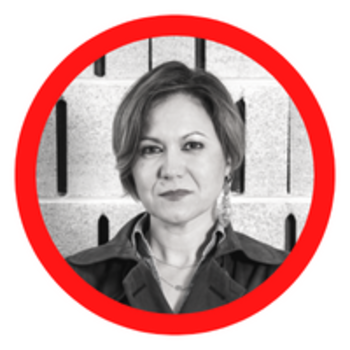

Meet some of our invited speakers

Leslie Biesecker
Leslie Biesecker

Dr. Biesecker is a clinical and molecular geneticist and is the chief of the Center for Precision Health Research at the National Human Genome Research Institute (NHGRI) of the National Institutes of Health. He uses genetic and genomic technologies to study the etiology of inherited disorders. He received his medical training at the University of Illinois, training in pediatrics at the University of Wisconsin, and in clinical and molecular genetics at the University of Michigan. His laboratory has elucidated the etiology and natural history of numerous diseases, including Proteus syndrome, PIK3CA-related overgrowth syndrome, TARP syndrome, oculofaciocardiodental syndrome, Lenz microphthalmia syndrome, McKusick-Kaufman syndrome, Bardet-Biedl syndrome, Pallister-Hall syndrome and Amish microcephaly, and has contributed to the discovery of many others. In addition, he developed the ClinSeq® program, which has consented more than 1,000 subjects for whole-genome sequencing with the interpretation and return of results. He co-directs a Clinical Laboratory Improvement Ammendments (CLIA)-certified molecular diagnostic laboratory within NHGRI.
Dr. Biesecker serves as an editor or board member for four biomedical journals, is an advisor to the Illumina Corporation and was a member of the board of directors for the American Society of Human Genetics. He served on advisory panels for the World Trade Center and Hurricane Katrina victim identification efforts. He was recently elected to the National Academy of Medicine of the National Academy of Sciences and has been elected to be the president of the American Society of Human Genetics for 2019.
Selected Publications
Biesecker LG, Adam MP, Alkuraya FS, Amemiya AR, Bamshad MJ, Beck AE, Bennett JT, Bird LM, Carey JC, Chung B, Clark RD, Cox TC, Curry C, Dinulos MBP, Dobyns WB, Giampietro PF, Girisha KM, Glass IA, Graham JM Jr, Gripp KW, Haldeman-Englert CR, Hall BD, Innes AM, Kalish JM, Keppler-Noreuil KM, Kosaki K, Kozel BA, Mirzaa GM, Mulvihill JJ, Nowaczyk MJM, Pagon RA, Retterer K, Rope AF, Sanchez-Lara PA, Seaver LH, Shieh JT, Slavotinek AM, Sobering AK, Stevens CA, Stevenson DA, Tan TY, Tan WH, Tsai AC, Weaver DD, Williams MS, Zackai E, Zarate YA. A dyadic approach to the delineation of diagnostic entities in clinical genomics.(external link) Am J Hum Genet. 2021;108(1):8-15.
Sapp JC, Johnston JJ, Driscoll K, Heidlebaugh AR, Miren Sagardia A, Dogbe DN, Umstead KL, Turbitt E, Alevizos I, Baron J, Bönnemann C, Brooks B, Donkervoort S, Jee YH, Linehan WM, McMahon FJ, Moss J, Mullikin JC, Nielsen D, Pelayo E, Remaley AT, Siegel R, Su H, Zarate C, NISC Comparative Sequencing Program., Manolio TA, Biesecker BB, Biesecker LG. Evaluation of Recipients of Positive and Negative Secondary Findings Evaluations in a Hybrid CLIA-Research Sequencing Pilot.(external link) Am J Hum Genet. 2018;103(3):358-366.
Biesecker BB, Lewis KL, Umstead KL, Johnston JJ, Turbitt E, Fishler KP, Patton JH, Miller IM, Heidlebaugh AR, Biesecker LG. Web Platform vs In-Person Genetic Counselor for Return of Carrier Results From Exome Sequencing: A Randomized Clinical Trial.(external link) JAMA Intern Med. 2018;178(3):338-346.
Biesecker LG, Green RC. Diagnostic clinical genome and exome sequencing.(external link) N Engl J Med. 2014;370(25):2418-25.
Lindhurst MJ, Sapp JC, Teer JK, Johnston JJ, Finn EM, Peters K, Turner J, Cannons JL, Bick D, Blakemore L, Blumhorst C, Brockmann K, Calder P, Cherman N, Deardorff MA, Everman DB, Golas G, Greenstein RM, Kato BM, Keppler-Noreuil KM, Kuznetsov SA, Miyamoto RT, Newman K, Ng D, O'Brien K, Rothenberg S, Schwartzentruber DJ, Singhal V, Tirabosco R, Upton J, Wientroub S, Zackai EH, Hoag K, Whitewood-Neal T, Robey PG, Schwartzberg PL, Darling TN, Tosi LL, Mullikin JC, Biesecker LG. A mosaic activating mutation in AKT1 associated with the Proteus syndrome.(external link) N Engl J Med. 2011;365(7):611-9.

Peter Robinson
Peter Robinson

Peter Robinson studied Mathematics and Computer Science at Columbia University and Medicine at the University of Pennsylvania. He completed training as a Pediatrician at the Charité University Hospital in Berlin, Germany. His group developed the Human Phenotype Ontology (HPO), which is now an international standard for computation over human disease that is used by the Sanger Institute, several NIH-funded groups including the Undiagnosed Diseases Program, Genome Canada, the rare diseases section of the UK's 100,000 Genomes Project, and many others. The group develops algorithms and software for the analysis of exome and genome sequences and has used whole-exome sequencing and other methods to identify a number of novel disease genes, including CA8, PIGV, PIGO, PGAP3, IL-21R, PIGT, and PGAP2.
SELECTED PUBLICATIONS
Zemojtel T, Köhler S, Mackenroth L, Jäger M, Hecht J, Krawitz P, Graul-Neumann L, Doelken S, Ehmke N, Spielmann M, Oien NC, Schweiger MR, Krüger U, Frommer G, Fischer B, Kornak U, Flöttmann R, Ardeshirdavani A, Moreau Y, Lewis SE, Haendel M, Smedley D, Horn D, Mundlos S, Robinson PN. Effective diagnosis of genetic disease by computational phenotype analysis of the disease-associated genome. Sci Transl Med 6:252ra123, 2014.
Brookes AJ, Robinson PN. Human genotype-phenotype databases: aims, challenges and opportunities. Nat Rev Genet 16:702-15, 2015.
Krawitz PM, Schweiger MR, Rödelsperger C, Marcelis C, Kölsch U, Meisel C, Stephani F, Kinoshita T, Murakami Y, Bauer S, Isau M, Fischer A, Dahl A, Kerick M, Hecht J, Köhler S, Jäger M, Grünhagen J, de Condor BJ, Doelken S, Brunner HG, Meinecke P, Passarge E, Thompson MD, Cole DE, Horn D, Roscioli T, Mundlos S, Robinson PN. Identity-by-descent filtering of exome sequence data identifies PIGV mutations in hyperphosphatasia mental retardation syndrome. Nat Genet. 42:827-9, 2010.
Robinson PN, Köhler S, Oellrich A, Sanger Mouse Genetics Project, Wang K, Mungall C, Lewis SE, Washington N, Bauer S, Seelow D, Krawitz P, Gilissen C, Haendel M, Smedley D. Improved exome prioritization of disease genes through cross species phenotype comparison. Genome Res. 24:340–348, 2014.
Robinson PN, Köhler S, Bauer S, Seelow D, Horn D, Mundlos S. The Human Phenotype Ontology: a tool for annotating and analyzing human hereditary disease. Am J Hum Genet 83:610-5, 2008.

Alexander Hoischen
Alexander Hoischen

Alexander Hoischen is affiliated with the department of Human Genetics and the department of Internal Medicine of the Radboudumc, and operates within the Radboudumc research theme Infectious diseases and global health. He and his research group are fascinated by the application of latest genomics technologies to understand the genetic basis of rare (immune) disorders. He is also the Scientific Director of the Radboud Technology Center Genomics.
Technological advances summarized as next generation sequencing (NGS) have changed human genetics dramatically in the last 15 years. For the first time we can read the genome, or the coding portion of the genome a.k.a. the exome, of many individuals; and this has changed the research and diagnostics of human diseases, in particular rare diseases. In addition, novel NGS-based approaches allow to read DNA with much improved accuracy allowing somatic mutation detection in an unprecedented way.
Our group has been involved in several discoveries of novel rare disease genes, with a recent focus on rare immunological diseases. We however face the challenge that in a large proportion of patients (30-80% depending on disease) with a likely rare genetic disease remains unexplained even after exome sequencing. Within the group ‘genomic technologies and immuno-genomics’, we aim to establish novel –omics methods and integrate the novel –omics data with existing data to boost the discovery of genetic causes of (rare (immunological)) diseases.
Within our group and together with our collaborators we envision novel themes that all go ‘beyond the exome’ and will ultimately improve (rare) disease genetics in research and diagnostics. Specific focus will be on: 1. Better analyses of existing exomes and move to genomes, 2. long-read genomes, 3. integration of the effect of rare and common variants, 4. integration of transcriptomics and genomics (and other –omics), 5. more accurate sequencing for somatic mutation detection, 6. early adoption of latest technologies for the benefit of immunology, pathology, and genetics.

Anna Benet-Pages
Anna Benet-Pages

Anna is head of Bioinformatics at the Medical Genetics Centre Munich and a research coordinator for the German Human Genome Archive (GHGA) at the Helmholtz Munich. Since 2019 she is also a scientific collaborator at UCSC Genome Browser.
She has a PhD in human genetics and is a specialist in the field of genome sequencing and data analysis with a strong background in the clinical genetics of Rare Diseases. She has many years of experience in interdisciplinary management of laboratory technology, bioinformatics, and scientific development in academic, clinical and private practice environments.
Anna is an advocate for the use of best practices in FAIR data management and sharing strategies to maximize the use of OMICS data and improve the diagnosis of genetic disorders. She has contributed to publications on guidelines for utilization of next-generation sequencing approaches in clinical genetics testing and she is assessor of the External Quality Assessment scheme for Charcot-Marie-Tooth disease within the European Genetics Quality Network (EMQN) framework. She strongly believes in the power of education and is therefore an active member of the HUGO Education Committee and an instructor at the Variant Effect Prediction Training Course (VEPTC).

Joris Vermeesch
Joris Vermeesch

A professor Molecular Cytogenetics at the University of Leuven and also faculty member of the European Genetics foundation heading the Constitutional Cytogenetics unit of the Center of Human Genetics, Leuven, Belgium and coordinating the genomic core at the University Hospital. Dr. Joris R. Vermeesch graduated at the University of Nebraska, Lincoln, USA for his studies on telomere biochemistry. Subsequently Dr. Joris R. Vermeesch joined the Center of Human Genetics in Leuven, Belgium during which period he was mainly interested in the structure and evolution of telomeres and centromeres and the development of a human artificial chromosome. Before taking up his current position, Dr. Joris R. Vermeesch was head of the genomics unit in the basic research division of Aventis CropScience and responsible for large scale genome analyses in several crops. Dr. Joris R. Vermeesch is currently president-elect of the Belgium Society of Human Genetics.
Research interests
The laboratory has three focus areas. First, the laboratory is at the forefront of genomic technology development and implementation. During the last five years, the laboratory focused on implementing array CGH in molecular diagnostics and on novel applications of array CGH. A major area of attention is the detection of genome wide CNV and SNP detection in single cells. Currently, the laboratory is developing methods massive parallel sequencing applications in preimplantation, prenatal and postnatal diagnosis. Second, in collaboration with clinical geneticists, the laboratory actively seeks to define the molecular causes of developmental, mental and behavioural disturbances. The group is partner of the SymbioSys, the systems biology center of excellence in computational biology to mine high throughput data analysis tools and to identify novel gene functions through data fusion methods. Third, based on the large cytogenetic screens, the laboratory is interested in understanding the mechanisms underlying chromosomal instability.
Research interests of Dr. Joris R. Vermeesch are: The constitutional cytogenetics laboratory, embedded within the clinical genetics unit of the university hospital, is responsible for the chromosome analysis for preimplantation, prenatal and postnatal diagnosis. Aberrant chromosome number and/or morphology are associated with miscarriages, congenital malformations, developmental disorders, mental retardation, behavioural problems and infertility. The identification of such chromosomal aberrations helps the diagnosis, determines the molecular cause of many disorders and helps family planning in affected families. Besides it’s routine diagnostic activities the laboratory is actively involved in research. The research activities focus on two areas. On the one hand, the laboratory is involved with the development of novel technologies in the area of chromosome analysis and genomics. On the other hand, in collaboration with the clinical geneticists, the laboratory actively seeks to define the molecular causes of developmental, mental and behavioural disturbances. To this end the laboratory takes advantage of the many chromosomal aberrations that are identified in patients and the advent of the human genome project. The international collaborative human genome project has provided us with the sequence of the human genome, the identification of the putative genes within our genome and with the tools to analyse this genome. Using these tools, we can readily analyse chromosomal aberrations at the molecular level and identify the genes causing the observed phenotypic aberrations.

Carla Oliveira
Carla Oliveira

C. Oliveira is recognised internationally for her work in E-cadherin/CDH1-related diseases and hereditary cancer. She disclosed novel germline causes of Hereditary Gastrointestinal Cancer and defined somatic events in tumours with impact for patient management and therapy.
Her main scientific aim is to disclose the missing heritability in Hereditary Gastric Cancer. For this, her team is exploring the whole genome, with particular emphasis in its noncoding portion. She also aims at finding biomarkers with clinical utility for earlier detection of sporadic and hereditary gastric cancer and to disclose actionable genotype-phenotype relationships in these diseases. The social and economic impact of hereditary cancer is a transversal aspect in her research and she privileges the interaction with Patient’s associations, such as EVITA.
C. Oliveira has been a PI of projects funded with >3.8M€ and team member in projects with equivalent total budget. She independently raised additional 2.5M€ for human resources. She was invited speaker in >120 National and International conferences; she is the Executive Committee Secretary General of the European Society of Human Genetics (ESHG), member of its Scientific Program Committee and vice-coordinator of the Scientific Program Committee of the Portuguese Society of Human Genetics (SPGH); National Coordinators and Representative of the Porto.Comprehensive Cancer Centre (P.CCC) in the European Reference Network ERN-GENTURIS on genetic tumour risk syndromes, and; the head the Hereditary Diffuse Gastric Cancer branch of the SolveRD (Solving Rare diseases) EU-Project. She is a member of the Portuguese Group of Hereditary Tumours (PROGO) promoted by The Portuguese Society of Oncology. She is regular reviewer of National and International fellowship and grant applications. She successfully supervised 15 Masters and 14 PhD students to completion, 11 post-docs and recruited 4 junior project leaders (iFCT) for her team.
C. Oliveira’s group has also gained expertise and visibility in genomics and bioinformatics, due to active participation in international consortia and large European Projects including the European-wide research project SOLVE-RD – Solve Rare diseases; the Consortium GEUVADIS and GTEx; Several COST actions, as well as the Marie Sklodowska-Curie Innovative Training Networks ITN TRAIN-EV. The group has relevant roles in management and executive functions in the GenomePT National Infrastructure for genome sequencing and the 1 Million European Genomes project. Her team is multidisciplinary with strong background in oncobiology and genetics, and supported by technical expertise in molecular and cellular biology, NGS, bioinformatics and a strong link with hospitals and clinical professionals. Her team was recently awarded with the Prize Alfredo da Silva on “Sustentabilidade de sistemas de saúde” for the work on optimized pathways of care in Hereditary cancer syndromes.
Highlights
The “EXPRESSION REGULATION IN CANCER” group aims, in the next three years, to identification cancer-associated expression regulatory mechanisms that impact early diagnosis, prognosis and chemotherapy-induced resistance in cancer.
Specific aims:
1. Identify the molecular basis of familial gastric cancer (HDGC and Familial Intestinal Gastric Cancer - FIGC);
2. Uncover somatic regulation in gastric cancer and its relationship with patients’ prognosis;
3. Optimize tools for early diagnosis of gastric cancer;
4. Uncover mechanisms involved in metastasis and chemotherapy-induced resistance using Epithelial-Mesenchymal-Epithelial transitions (EMT/MET) experimental models;
5. Unravel the role of mRNA mistranslation in human cancer.

Sara Gutiérrez-Enríquez
Sara Gutiérrez-Enríquez

Senior Researcher of VHIO´s Hereditary Cancer Genetics Group
Dr. Sara Gutiérrez-Enríquez is a Molecular Geneticist with 20 years of experience in the field of Clinical Genetics. She did her Biology’s Bachelor in the Pontificia Universidad Católica del Ecuador. She completed her PhD in Genetics at Autonomous University of Barcelona before moving on to a Marie Curie European postdoctoral fellowship in DNA Repair and Cancer at International Agency for Research on Cancer in Lyon, France. She did a 2nd postdoctoral stage in Hereditary Cancer at Hospital de la Santa Creu i Sant Pau, in Barcelona, Spain. She was awarded with a Miguel Servet Contract, a prestigious program for incorporating clinical researchers in centers of the Spanish National Health System. She is currently senior investigator in the Hereditary Cancer Genetics Group in the Vall d'Hebron Institute of Oncology (VHIO) of Barcelona and she is the leader of the research done in the laboratory (https://vhio.net/pf/hereditary-cancer-genetics-group/).
Her fields of expertise are Hereditary Breast and Ovarian Cancer (HBOC) and Radiogenomics. Her current research is focused on:
-improving genetic testing of HBOC through greater reliance on RNA and WGS-based genetic diagnosis.
-optimizing genetic variant interpretation, specifically the classification of potentially spliceogenic variants, and
-personalizing radiotherapy by deciphering the genetic susceptibility underlining the radiotherapy-induced normal tissue toxicity.
She has been funded as principal investigator in European and national projects uninterrupted since 2011. She is author in more than 80 manuscripts and has directed two doctoral theses defended in 2019 and 2022.
In 2019, she has been accredited in Clinical Genetics by the Spanish Association of Human Genetics (AEGH). In 2021 she was invited to join the steer committee as a deputy chair of the Splicing Working Group of the ENIGMA international consortium (Evidence-based Network for Interpretation of Germline Mutant Alleles), which aims to develop statistical and laboratory methods to evaluate variants of uncertain clinical significance in known and suspected breast/ovarian cancer predisposition genes.

Christian Gillissen
Christian Gillissen

Professor Christian Gilissen's group develops and applies bioinformatics methods to gain insight into the causes and mechanisms of genetic disorders such as intellectual disability.
1. The development and application of bioinformatics methods and new technologies to better identify genetic variation
Next-generation sequencing techniques such as exome or whole genome sequencing have become the standard techniques for genetic testing and research. In addition, new technologies that allows us to better identify variation in the human genome are steadily developed. Our department is at the forefront of testing and implementing these technologies. With all of these technologies, new bioinformatics methods are required and we have done performed various studies showing the clinical utility of novel techniques, or developing novel methods that improve on variant identification of existing technologies:
Accurate detection of clinically relevant uniparental disomy from exome sequencing data. Yauy K, de Leeuw N, Yntema, HG, Pfundt R#, Gilissen C#. Genet Med. 2019 Nov 26. PMID:31767986.
Comparison of Exome and Genome Sequencing Technologies for the Complete Capture of Protein Coding Regions.Lelieveld SH, Spielmann M, Mundlos S, Veltman JA, Gilissen C. Hum Mutat. 2015 May 14. PMID: 25973577.
Genome sequencing identifies major causes of severe intellectual disability.Gilissen C*, Hehir-Kwa JY*, … Brunner HG#, Vissers LELM#, Veltman JA#. Nature. 2014 Jul 17;511(7509):344-7. PMID: 24896178.
A Post-Hoc Comparison of the Utility of Sanger Sequencing and Exome Sequencing for the Diagnosis of Heterogeneous Diseases. Neveling K*, Feenstra I*, Gilissen C*, … Scheffer H, Nelen MR. Hum Mutat. 2013 Dec;34(12):1721-6. PMID: 24123792.
In ongoing studies we’re investigating the potential of long-read sequencing technologies for medical genetics, and the recycling of exome sequencing data for identifying novel types of genetic variation.
2. The development and application of bioinformatics data-integration methods to understand the effect of genetic variation in the context of human disease, in order to identify the genetic cause of disease
With the availability of large datasets of genetics information, we can try and understand more about the biology of disease by performing large scale data-integration, either integrating different large genetic datasets, or by combining genetics with other types of biological data. We have worked on using statistical approaches to identify candidate genes in which mutations give rise to neurodevelopmental disorders:
Integrating healthcare and research genetic data empowers the discovery of 49 novel developmental disorders.Joanna Kaplanis*, Kaitlin E. Samocha*, Laurens Wiel*, Zhancheng Zhang*, … Matthew E. Hurles#, Christian Gilissen#, Kyle Retterer#. bioRxiv 797787; doi: https://doi.org/10.1101/797787
Spatial Clustering of de Novo Missense Mutations Identifies Candidate Neurodevelopmental Disorder-Associated Genes. Lelieveld SH*, Wiel L*, … Vissers LELM#, Gilissen C#. Am J Hum Genet. 2017 Aug 30. PMID: 28867141.
Meta-analysis of 2,104 trios provides support for 10 new genes for intellectual disability Lelieveld SH*, Reijnders MRF*, … , Vissers LELM#, Brunner HG#, Gilissen C#. Nat Neurosci. 2016 Aug 1. PMID: 27479843.
3. Bioinformatic investigations into the biological mechanisms that underlie new mutations in humans
De novo mutations are a frequent cause of human disease, such as neurodevelopmental disorders but are also the drivers of human evolution. However, we still know very little about why and how exactly these types of mutations arise. Through bioinformatics analysis of large whole genome sequencing datasets we try to identify patterns of these de novo mutations that give us insight into the likely underlying mechanisms that cause these mutations to occur:
De Novo Mutations Reflect Development and Aging of the Human Germline.Goldmann JM, Veltman JA, Gilissen C. Trends Genet. 2019 Oct 11. PMID: 31610893.
Germline de novo mutation clusters arise during oocyte aging in genomic regions with high double strand-break incidence.Goldmann JM*, Seplyarskiy VB*, Wong WSW*, Vilboux T, Neerincx PB, Bodian DL, Solomon BD, Veltman JA, Deeken JF, Gilissen C#, Niederhuber JE#. Nat Genet. 2018 Mar 5. PMID: 29507425.
Parent-of-origin specific signatures of de novo mutations. Goldmann JM*, Wong WSW*, Pinelli M, Farrah T, Bodian D, Stittrich AB, Glusman G, Vissers LELM, Hoischen A, Roach JC, Vockley JG, Veltman JA, Solomon BD, Gilissen C#, Niederhuber JE#. Nat Genet. 2016 Jul 20. PMID: 27322544.
Patient care
This research group is strongly connected to the division of Genome Diagnostics that offers state-of-the-art genetic testing for patients with genetic disorders. This allows us to test and validate new bioinformatic methods on large cohorts of patient data, but also facilitates the quick adoption of new techniques into patient care.

Stefan Barakat
Stefan Barakat

Stefan Barakat, PhD, MD, associate professor, is a clinical geneticist and experimental biologist leading a research group at Erasmus MC. His PhD at Erasmus MC led to improved understanding of the regulation of X chromosome inactivation during female development, amongst others by identifying the X-linked gene RNF12/RLIM as an activator this epigenetic process (Cell 2009, Nature 2012, Molecular Cell 2014). His postdoctoral training at the University of Edinburgh (supported by EMBO, Marie Curie and Niels Stensen fellowships) focused on developing new technologies to study functionality of regulatory elements genome-wide (Cell Stem Cell 2018). Since 2017, his group in Rotterdam (supported amongst others by ZonMw Veni and Vidi awards) focuses on deciphering the role of the non-coding genome in causing human disease (Genome Medicine 2021) and finding new causes of neurodevelopmental disorders (Acta Neuropathologica 2019, 2020, 2023, Brain 2021). His group has identified >5 new syndromes causing neurodevelopmental disorders including an epileptic encephalopathy linked to UGP2 and a form of spastic paraplegia caused by mutations in AMFR, and for both of these disorders current research lines focus on therapy development. Furthermore, his group has contributed to the discovery of >20 other genetic disorders using stem-cell and zebrafish disease modelling, recently acknowledged with an KNAW Early Career Award 2021. In his clinical work, he focusses on patients with neurodevelopmental disorders, co-leads the cerebral overgrowth clinic within the expertise center ENCORE at Erasmus MC and heads the Discovery Unit of the clinical genetic department that aims to improve the diagnostic yield for patients with undiagnosed disease.
His talk at the conference, entitled “Finding causes of missing heritability in neurogenetic disorders: exploring the dark matter of the genome” will cover the following:
Despite the powerful tools and technologies available to the field of human genetics, at present more than half of the patients suspected of a genetic cause of their rare disease remain undiagnosed. My lab tries to tackle this “missing heritability” in the context of neurogenetic disorders, where we focus on the one hand on disease modelling using stem cell derived models and zebrafish elucidating new monogenetic disease causes, and on the other hand try to increase our understanding of the regulatory elements contained in the non-coding genome, of which we hypothesise that genetic alterations might solve at least a fraction of that missing heritability. We do this by applying functional genomics including massively parallel reporter assays and computational analysis to generate atlases of functional regulatory elements in various human brain cells, and interrogating these atlases using convolutional neural networks to predict functional nucleotides within regulatory elements. This provides useful information to prioritize non-coding variants identified by whole genome sequencing . In this talk, I will present a number of examples from both our disease modelling and non-coding genome projects, that together help to shed light on the dark matter of the human genome.

Ana Teresa Maia
Ana Teresa Maia

Vice-Director of the Centre for Biomedical Research at the University of Algarve, Portugal.
She graduated in Applied Chemistry – Biotechnology from the Faculty of Science and Technology, Nova University of Lisbon, and has a MSc in Molecular Genetics from Imperial College, London, UK, and a Ph.D. in Human Genetics from the Institute of Cancer Research, also at the University of London.
She was a researcher at Cambridge University for over eight years and has won several awards and grants throughout her career, including the 1st Health Marathon Award and the Born from Knowledge Ideas Award, in the “Health and Well-Being” category, promoted by ANI – National Agency for Innovation.

Johan T. den Dunnen
Johan T. den Dunnen

Johan den Dunnen studied biology at the Catholic University Nijmegen (Nederland). In the same university he received his PhD in Molecular Biology for his work on the "Evolution of eye-lens crystallin genes". After his PhD he moved to the department of Human Genetics (Leiden University) and became involved in the search for the gene causing Duchenne/Becker muscular dystrophy. He is currently employed at the Center for Human and Clinical Genetics (Leiden University Medical Center, Leiden, Nederland), studying genetic disease in general and neuromuscular disorders (DMD/BMD, LGMD) in particular. As professor in "Medical Genomics" he focuses on the use of new high-throughput technology in research and diagnosis of genetic disease, in particular the development of methods to detect DNA variants and the application of next generation sequencing. To spread the laboratories knowledge on hereditary muscle disease he initiated the "Leiden Muscular Dystrophy pages" (http://www.DMD.nl). As part of these efforts he currently curates over 50 gene sequence variant databases. His group developed the freely available LSDB-in-a-Box software package LOVD, the Mutalyzer tool (HGVS sequence variant description) and he participates in the EU FP7 Gen2Phen project (WP leader for gene variant databases [LSDBs]).

Thierry Voet
Thierry Voet

Laboratory of Reproductive Genomics, Department of Human Genetics, KU Leuven, Leuven Belgium
Thierry Voet graduated with a Master in Bioscience Engineering: Cell and Gene Biotechnology from the University of Leuven (KU Leuven, Belgium), and holds an inter-university post-graduate in Human Genetics. Following his PhD in the Human Genome Laboratory at KU Leuven, he pioneered single-cell microarray analyses, and in 2010, he joined in the Cancer Genome Project at the Wellcome Sanger Institute (Cambridge, UK) to explore next-generation sequencing technologies for single-cell genomics, which led to an Associate Faculty membership. In 2014, he became Associate Professor at KU Leuven following a tenure track, and was appointed Professor in 2017 and Full Professor in 2022. Recently, he founded the interdisciplinary KU Leuven Institute for Single Cell Omics (LISCO) together with 33 colleagues, of which he is also director. His research focuses on (1) the development of methods for single-cell and spatial multi-omics, and (2) their application to study the biology of cellular heterogeneity in human development, aging and disease.

Andreas Laner
Andreas Laner

Andreas Laner, PhD
Head of Genomics Program
Areas of Specialization
- Genetics of hereditary cancer syndromes
- Next-generation sequencing applications
- Interpretation and classification of sequence variants
Education & Experience
- Diploma in Biology, Ludwig Maximilian University, Munich
- PhD, Ludwig Maximilian University, Munich
Professional affiliations
- MGZ Munich, Head of Genomics Applications
- Member, European Society of Human Genetics
- Curator, Leiden Open Variation Database
- Organizational Committee, Variant Effect Prediction Training Course, Crete 2016
- Scientific Program Committee, 14th International Symposium on Variants in the Genome, Santiago de Compostela 2017

José Bessa
José Bessa

Vertebrate Development and Regeneration, Group leader
Instituto de Investigação e Inovação em Saúde Universidade o Porto.
José Bessa completed his PhD degree in Developmental Biology at ICBAS (University of Porto; 2008), acquiring advanced knowledge in the development of Drosophila and Zebrafish visual systems, under the supervision of Dr. F. Casares. As a postdoc, Dr Bessa has joined the lab of Dr. J.L. Gomez-Skarmeta, an expert in zebrafish Functional Genomics. Currently Dr Bessa is developing an independent research line on transcriptional cis-regulation and gene function in the zebrafish pancreas.
